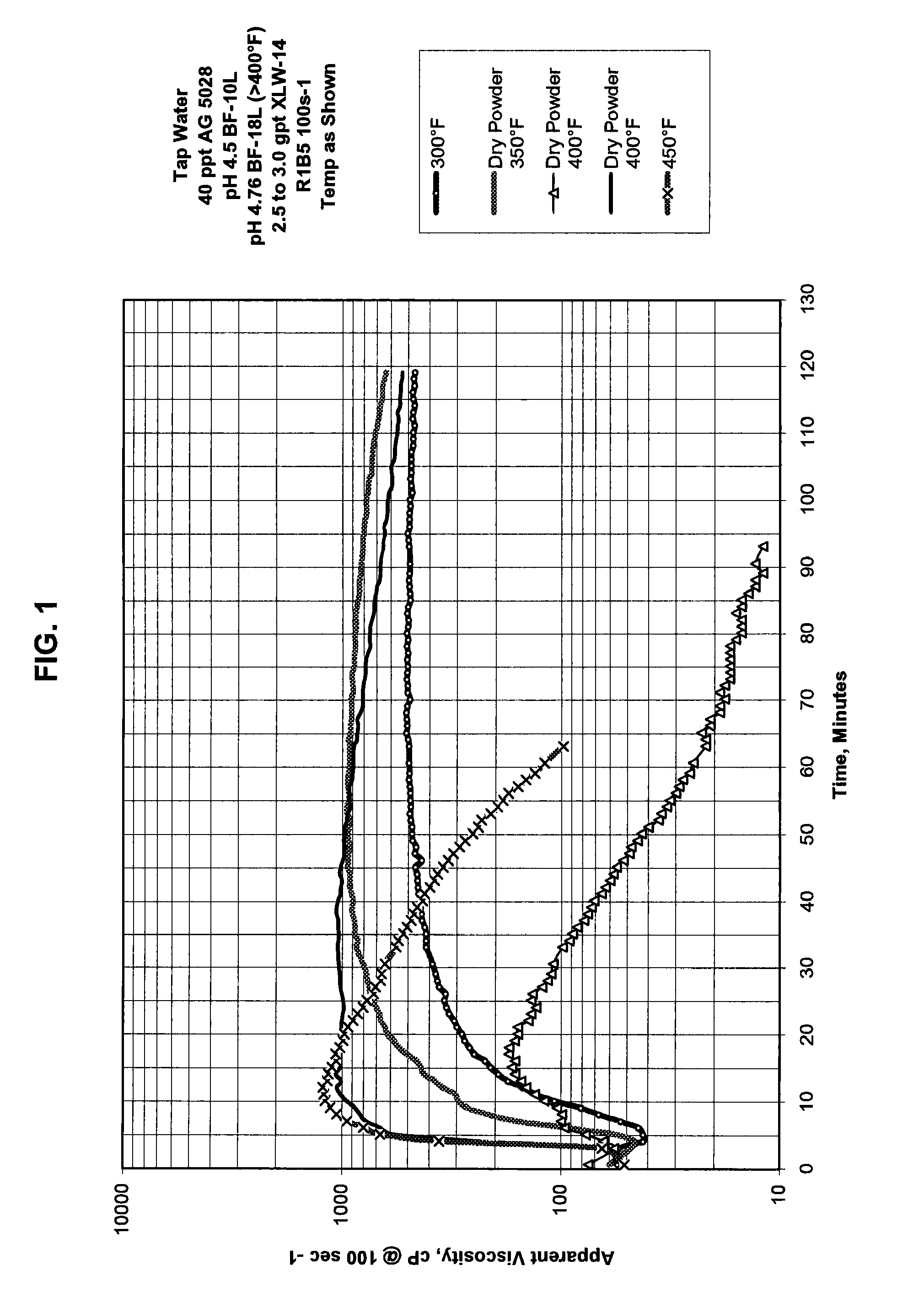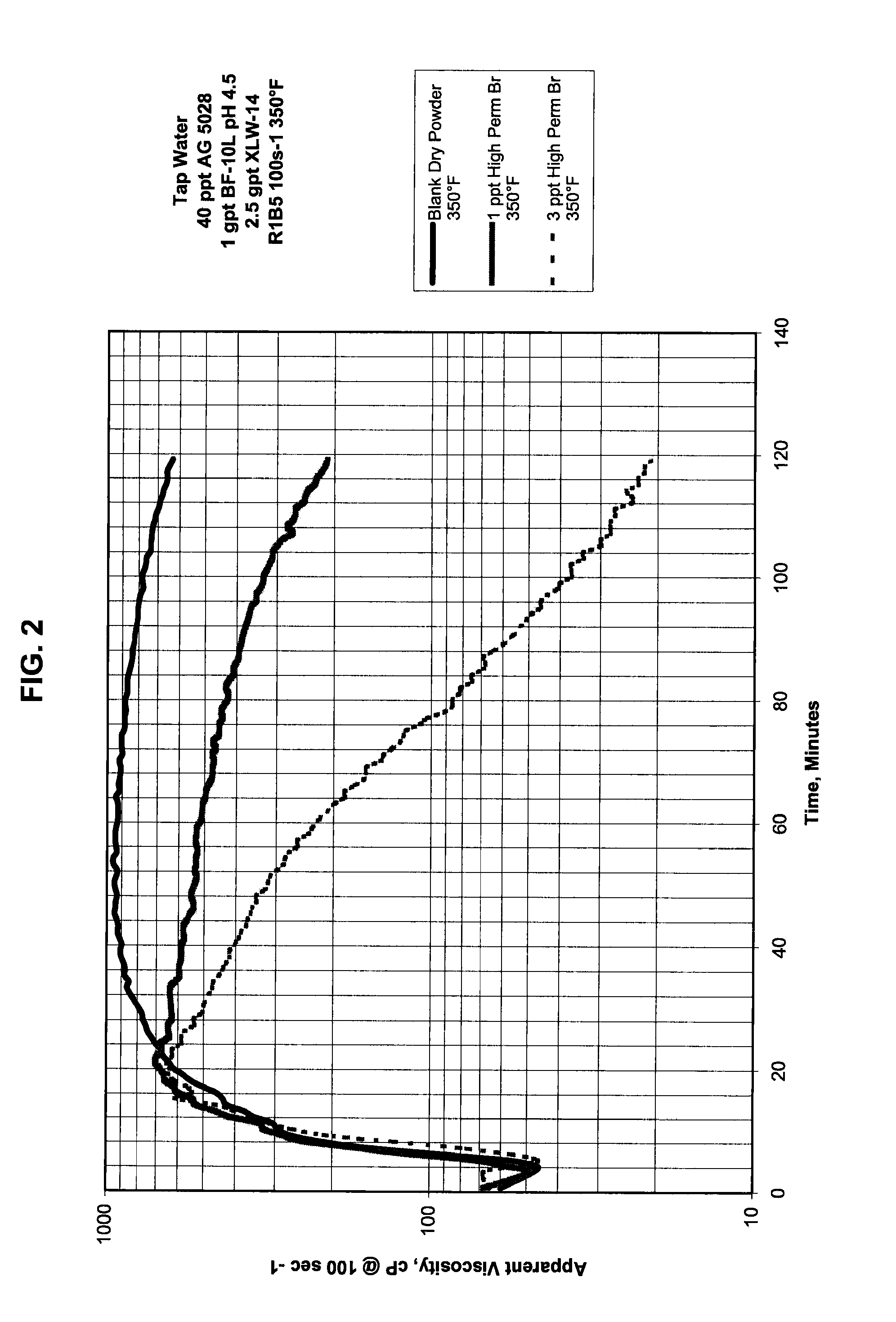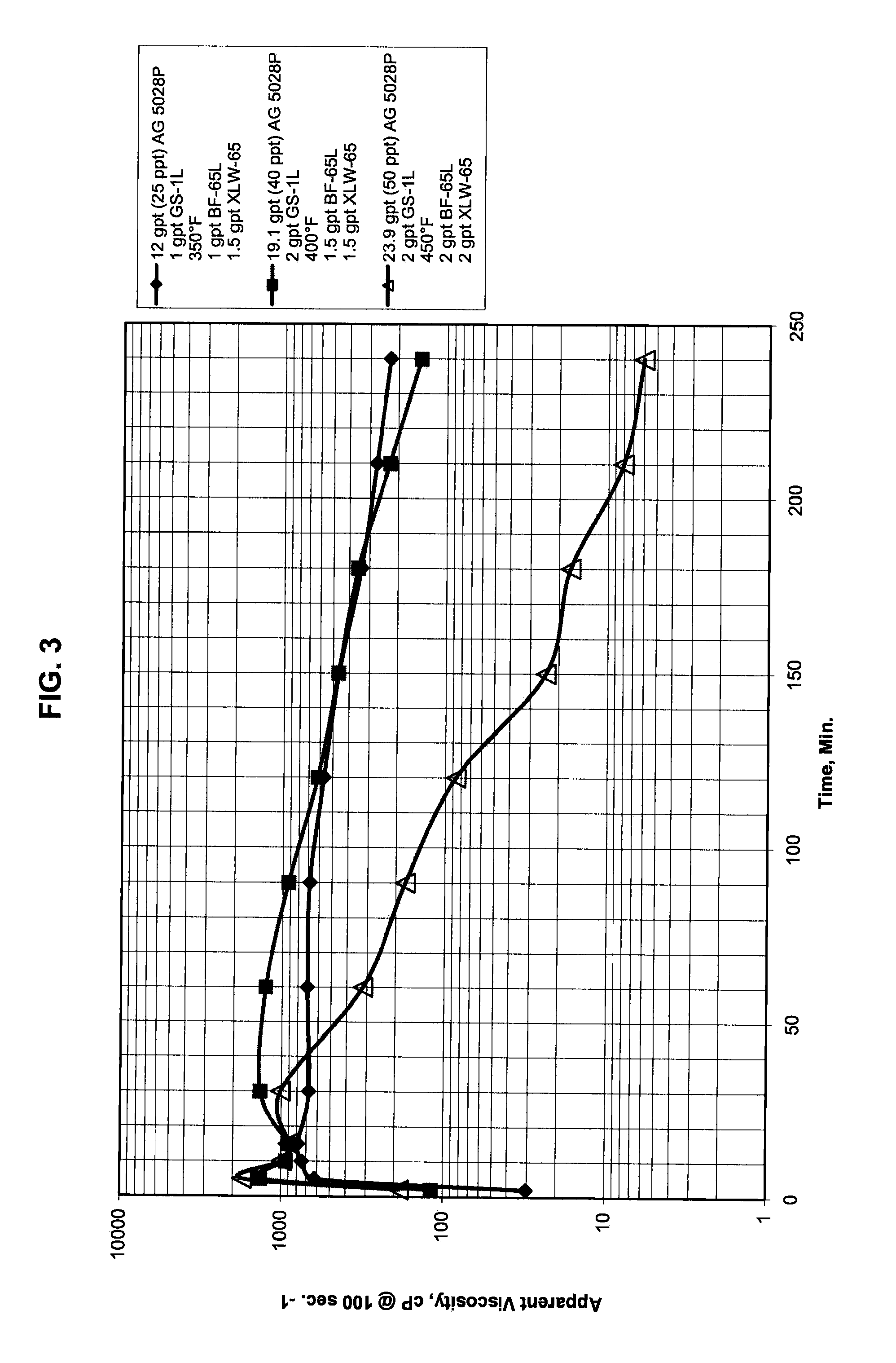Compositions and Methods of Treating High Temperature Subterranean Formations
- Summary
- Abstract
- Description
- Claims
- Application Information
AI Technical Summary
Benefits of technology
Problems solved by technology
Method used
Image
Examples
example 1
[0056]Samples of the high temperature well treatment fluid of the present invention were prepared by mixing 40 pounds of copolymer derived from acrylamide and acrylamidomethylpropanesulfonic acid in one thousand gallons (ppt) tap water and allowed to hydrate for 30 minutes. A suitable copolymer that was used in this example is commercially available as Allessan® AG 5028P from Allessa Chemie. The order of addition of the additives is as it appears in FIG. 1. As shown in FIG. 1, the apparent viscosity in centipoises (cP) was measured and plotted for the high temperature well treatment fluid at temperatures ranging from 300° F. (148.9° C.) to 500° F. (260° C.) using a R1B5 bob and cup combination against time in minutes. FIG. 1 shows stability of the high temperature well treatment fluid of the present invention without the use of breakers. The pH was controlled using two different pH buffers. As indicated in FIG. 1, some of the samples were added as a dry powder to the fracturing flui...
example 2
[0057]Three samples of the high temperature well treatment fluid of the present invention were prepared by mixing 40 pounds of copolymer derived from acrylamide, acrylamidomethylpropanesulfonic acid, and vinyl phosphonate in one thousand gallons tap water (Allessan® AG 5028P from Allessa Chemie) and allowed to hydrate for 30 minutes. The order of addition of the additives is as it appears in FIG. 2. As shown in FIG. 2, the apparent viscosity was measured and plotted for the high temperature well treatment fluid at 350° F. (176.7° C.) using a R1B5 bob and cup combination against time in minutes. The pH was controlled using 1 gpt of acetic acid to pH 4.5 (e.g., BF-10L by Baker Hughes Incorporated). 2.5 gallons per 1,000 gallons high temperature well treatment fluid (gpt) of a zirconate-based crosslinking agent (e.g., XLW-14 by Baker Hughes Incorporated) was used in the samples. The first sample was made without the use of a breaker. The second and third samples were prepared with one ...
example 3
[0058]Three samples of the high temperature well treatment fluid of the present invention were prepared by mixing varying amounts of copolymer derived from acrylamide, acrylamidomethylpropanesulfonic acid, and vinyl phosphonate with tap water (Allessan® AG 5028P with a built in stabilizer from Allessa Chemie) and allowed to hydrate for 30 minutes. The components, order of addition, and conditions in this example are as follows:
Component / ConditionSample 1Sample 2Sample 3Copolymer (AG 5028P), ppt254050Gel stabilizer (GS-1L), gpt122Buffer (BF-65L), gpt11.52Crosslinking agent (XLW-65), gpt1.51.52Temperature, ° F. (° C.)350400450(176.7)(204.4)(232.2)
The gel stabilizer GS-1L, buffer BF-65L, and crosslinking agent XLW-65 are all commercially available from Baker Hughes Incorporated. As shown in FIG. 3, the apparent viscosity was measured and plotted for the high temperature well treatment fluid at temperatures ranging from 350° F. (176.7° C.) to 450° F. (232.2° C.) using a R1B5 bob and cup...
PUM
 Login to View More
Login to View More Abstract
Description
Claims
Application Information
 Login to View More
Login to View More - R&D
- Intellectual Property
- Life Sciences
- Materials
- Tech Scout
- Unparalleled Data Quality
- Higher Quality Content
- 60% Fewer Hallucinations
Browse by: Latest US Patents, China's latest patents, Technical Efficacy Thesaurus, Application Domain, Technology Topic, Popular Technical Reports.
© 2025 PatSnap. All rights reserved.Legal|Privacy policy|Modern Slavery Act Transparency Statement|Sitemap|About US| Contact US: help@patsnap.com



